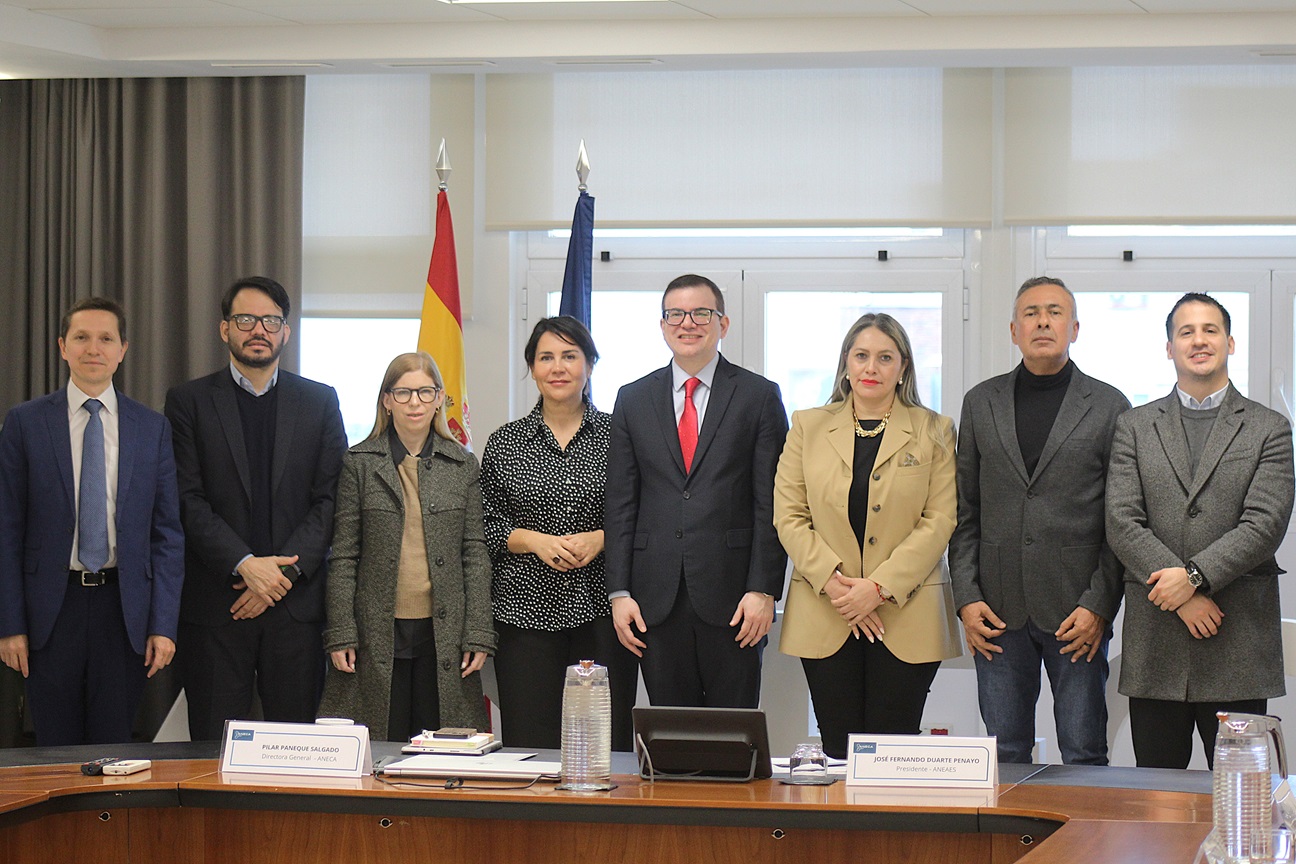ANECA welcomes Paraguay's National Agency for the Evaluation and Accreditation of Higher Education to its headquarters
-
29/10/2025

In line with its strategic approach, ANECA's management always maintains an open and ongoing agenda to continue building relationships and promoting meetings with similar institutions with which it shares functions and challenges. On this occasion, it received a visit from the National Agency for the Evaluation and Accreditation of Higher Education (ANEAES), which is the public body responsible for promoting and guaranteeing the quality of higher education in Paraguay. The official delegation was led by its president, José Fernando Duarte, who was accompanied by representatives from several of its departments and other senior officials from the agency.
Firstly, it should be noted that both agencies already share a common framework of reference in terms of quality assurance at the regional level due to their membership of the Ibero-American System for Quality Assurance in Higher Education (SIACES), whose principles of good practice have been validated in both cases. This starting point undoubtedly facilitated the transfer of ANECA's experience as a member of another regional network, ENQA, which follows the standards and guidelines for quality assurance in the EHEA (ESG, 2015), which constitute the reference basis for the design and implementation of all the agency's associated processes.
Next, in conversation with the agency's technical team, it was possible to go into much greater detail on the key elements that make up the operation and procedural development of the different programs, especially in relation to the evaluation and accreditation of degrees and institutions, both of which are processes that concentrate a large part of the efforts and attention of both entities. The aspects that aroused the most interest were the differences between the governance and management systems of the processes, as well as everything related to the selection, management, and training of peer evaluators.
It was undoubtedly a fruitful dialogue that delved into shared objectives in the field of internationalization, such as knowledge of different practices and the harmonization of benchmarks, thereby contributing to mutual trust and recognition. As a result, both entities agreed to continue the discussions that had begun, strengthening the ties of cooperation between agencies.
